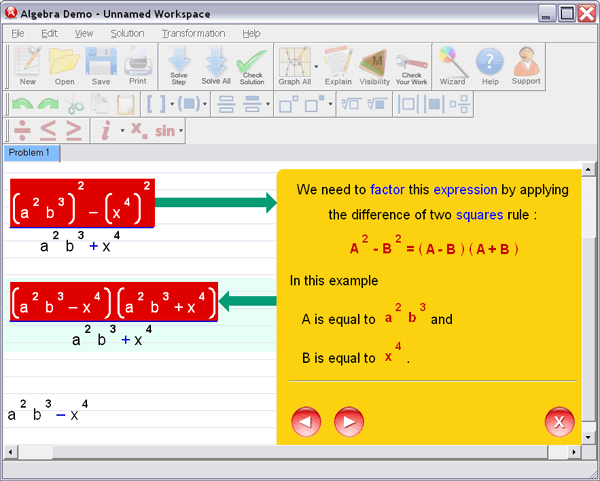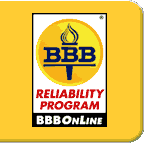Fractions
| Time |
Lesson/Activity |
MPS Learning
Targets |
Suggested State Framework
Assessment Descriptors |
District Model
CABS |
Suggested
Vocabulary |
60 mins
15 mins
60 mins
|
Fractions
Activity 8.7, Pg. 709, Part 3:
• Folding paper pizzas
• Making a Fraction Book
(experiences should continue throughout the
summer) Comparing Fractions
Activity 9.7, Pg. 774, Part 3:
• Matching fractions
Many Names for Fractional Parts
Activity 9.8, Pg.779, Part 1:
• Naming Fractional parts in several way
Activity 9.8, Pg.780, Part 2:
• Finding Names for fractional parts
Home Link 9.8, Pg. 781 |
Number Operations
and Relationships
Learning Target #1
Represent numbers,
monetary values, and
fractions (i.e., halves
and fourths) to show
equivalency (e.g.,
5+5=8+2, 10 dimes is
worth $1.00, 4 fourths
is the same as 1 whole)
and to compare them. |
Number Operations and
Relationships Suggest Descriptors
B.a Concept
B.a.5 Represent halves and
fourths using objects and
pictures to explain the
meaning of fractions as parts
of a whole.
Mathematical Processes
A.1 Use reasoning and logic
to: Perceive patterns, Identify
relationships, formulate
questions, pose problems,
make conjectures, justify
strategies and test
reasonableness of results. |
Number
Operations and
Relationships
|
equal
|
| 15 mins
Ongoing
30 mins
60 mins
60 mins
30 mins
60 mins
|
Non-Standard Linear Measures
Activity 4.2, Pg. 281, Part 3
• Comparing Objects by lengthPlant
Project
Pg. 433, ( substitute bean seeds)
Measuring with a Tape Measure
Activity 4.6, Pg. 302, Part 3
• activity 1
• activity 2
Digital Clocks
Activity 6.10, Pg. 587
Review Telling Time
Activity 10.2, Pg. 805, Part 1
Review telling time to five minutes, Pg. 806-807
Review digital notation, Pg. 806-807
Practice with time, Pg. 806-807
Differentiation , Pg. 810, Part 3
• Analog Clock
• Elapsed time
Review: Thermometers and Temperature
Activity 10.6, Pg. 827, Part 3
• comparing temperature scales
• practicing with temperature
Snake Imprints, Navigating through Measurement,
Pg.
37
Project 4: All About Time
Timing in seconds, Pg. 857-858
Timing Activity, Pg. 857-858
Personal Calendars, Pg. 857-858
Extending Suggestions, Pg. 857-858
|
Measurement
Learning Target # 6
Describe measurable
attributes and identify,
estimate, and use nonstandard
and standard
units to measure
attributes of objects,
time, and temperature.
|
Measurement
Suggest Descriptors
D.a Measurable attributes
D.a.1 Use everyday language to
describe measurable attributes of
objects (e.g., height, length, distance
around, weight, mass, capacity),
time, and temperature.
D.a.2 Identify appropriate nonstandard
units (e.g., paper clips,
cubes ) and standard units (e.g.,
inches, minutes, hours, days,
months, degrees Fahrenheit) to
quantify measurable attributes.
D.b Direct measurement
D.b.3 Read and interpret measuring
instruments to quantify measurable
attributes of objects using nonstandard
units and standard units to
the nearest whole unit (e.g., nearest
inch or nearest number of paper
clips).
D.b.6 Tell time to the nearest hour
or half-hour using analog clocks and
tell time using digital clocks.
D.c Indirect measurements
D.c.7 Estimate length, weight, and
mass of objects using common
referents for non-standard and
standard units.
Mathematical Processes
A.1 Use reasoning and logic to :
Perceive patterns, Identify
relationships, formulate questions ,
pose problems, make conjectures,
justify strategies and test
reasonableness of results. |
Measurement
“Match the
Temperature”“Telling Time”
“How Would You
Measure?” |
hour measure
temperature |
| 60 mins
30 mins
60 mins
30 mins
30 mins
60 mins
|
Investigating Equally
Likely Outcomes
Activity 1.8, Pg.47-51, Dice roll and tally
Complements of Ten
Activity 2.3, Pg. 108
• Making sums of 10
• Record possible combinations using the
“two-fisted penny addition
Data Day
Activity 3.13, Pg. 247-250
• Making a line plot
• Home Link
• Enrichment
Exploring Data
Activity 4.7, Pg. 307,
• Part 1: Exploration A
• “Making a Bar Graph and Finding a
Typical ” Height pg. 310
Spin It, Navigations, Pg. 67
Possible or Impossible, Navigations, Pg. 65
Dice Sums
Activity 5.9, Pg. 398
Data Landmarks
Activity 6.12, Pg. 602
• Determine lowest and highest values of
heights from 4.7 above and dice throws
from 5.9 above.
Pg. 603 Enrichment:
• Make predictions and then collect and
analyze data for student questions. |
Statistics and
ProbabilityLearning Target # 7
Pose questions for
collecting numerical
and categorical data,
display and draw
conclusions to answer
questions, and identify
the likelihood of
events.
|
Statistics and Probability
Suggest Descriptors
E.a Probability
E.b.5 Determine the
likelihood (e.g., very likely,
somewhat likely, not very
likely, certain, impossible) of
real -world events (e.g., it is
very likely that people in our
class will pick chocolate ice
cream to each at the party).
Mathematical Processes
A.1 Use reasoning and logic to:
Perceive patterns, Identify
relationships, formulate
questions, pose problems, make
conjectures, justify strategies and
test reasonableness of results.
|
Statistics and
Probability“ Two of
Anything ”
|
likelihood
|
Statistics and Probability
CONTINUED ON NEXT PAGE |
| 30 mins
60 mins
30 mins
|
Data Day
Activity 10.1, Pg.801
• Use data from 4.7 and find “typical”
height of children in class (mode)
Activity 10.1, Pg. 802,
• Find the middle value of the height data
(median)Project 7
Weather and Probability
Pg. 868-870
• Discussing weather forecasts
• Predicting weather events
• Making a class weather book
Extending the Project, Pg. 868-870
Extension suggestions, Pg. 868-870
Home Link, Pg. 868-870 |
Statistics and
ProbabilityLearning Target # 7
Pose questions for
collecting numerical
and categorical data,
display and draw
conclusions to answer
questions, and identify
the likelihood of
events.
|
Statistics and Probability
Suggest Descriptors
E.a Probability
E.b.5 Determine the
likelihood (e.g., very likely,
somewhat likely, not very
likely, certain, impossible) of
real-world events (e.g., it is
very likely that people in our
class will pick chocolate ice
cream to each at the party).
Mathematical Processes
A.1 Use reasoning and logic to:
Perceive patterns, Identify
relationships, formulate
questions, pose problems, make
conjectures, justify strategies and
test reasonableness of results. |
Statistics and
Probability“Two of
Anything”
|
likelihood
|
Start solving your Algebra Problems
in next 5 minutes!
 |
 |
 |
|
Algebra Helper
Download (and optional CD)
Only $39.99
|
|
Click to Buy Now:
OR
|
|
|
 |
 |
 |
|
2Checkout.com is an authorized reseller
of goods provided by Sofmath
|
|
Attention: We are
currently running a special promotional offer
for Algebra-Answer.com visitors -- if you order
Algebra Helper by midnight of
February 5th
you will pay only $39.99
instead of our regular price of $74.99 -- this is $35 in
savings ! In order to take advantage of this
offer, you need to order by clicking on one of
the buttons on the left, not through our regular
order page.
If you order now you will also receive 30 minute live session from tutor.com for a 1$!
|
You Will Learn Algebra Better - Guaranteed!
Just take a look how incredibly simple Algebra Helper is:
Step 1
: Enter your homework problem in an easy WYSIWYG (What you see is what you get) algebra editor:

Step 2 :
Let Algebra Helper solve it:

Step 3 : Ask for an explanation for the steps you don't understand:

Algebra Helper can solve problems in all the following areas:
- simplification of algebraic expressions (operations
with polynomials (simplifying, degree, synthetic division...), exponential expressions, fractions and roots
(radicals), absolute values)
- factoring and expanding expressions
- finding LCM and GCF
-
(simplifying, rationalizing complex denominators...)
- solving linear, quadratic and many other equations
and inequalities
(including basic logarithmic and exponential equations)
- solving a system of two and three linear equations
(including Cramer's rule)
- graphing curves (lines, parabolas, hyperbolas, circles,
ellipses, equation and inequality solutions)
- graphing general functions
- operations with functions (composition, inverse, range, domain...)
- simplifying logarithms
- basic geometry and trigonometry
(similarity, calculating trig functions, right triangle...)
- arithmetic and other pre-algebra topics
(ratios, proportions, measurements...)
ORDER NOW!
 |
 |
 |
|
Algebra Helper
Download (and optional CD)
Only $39.99
|
|
Click to Buy Now:
OR
|
|
|
 |
 |
 |
|
2Checkout.com is an authorized reseller
of goods provided by Sofmath
|
|
|
 |
| |
| "It
really helped me with my homework. I was
stuck on some problems and your software walked me
step by step through the process..." |
| C. Sievert, KY
| |
| |
 |
| |
Sofmath
19179 Blanco #105-234
San Antonio, TX 78258
|
Phone:
(512) 788-5675
Fax: (512) 519-1805
| | |



